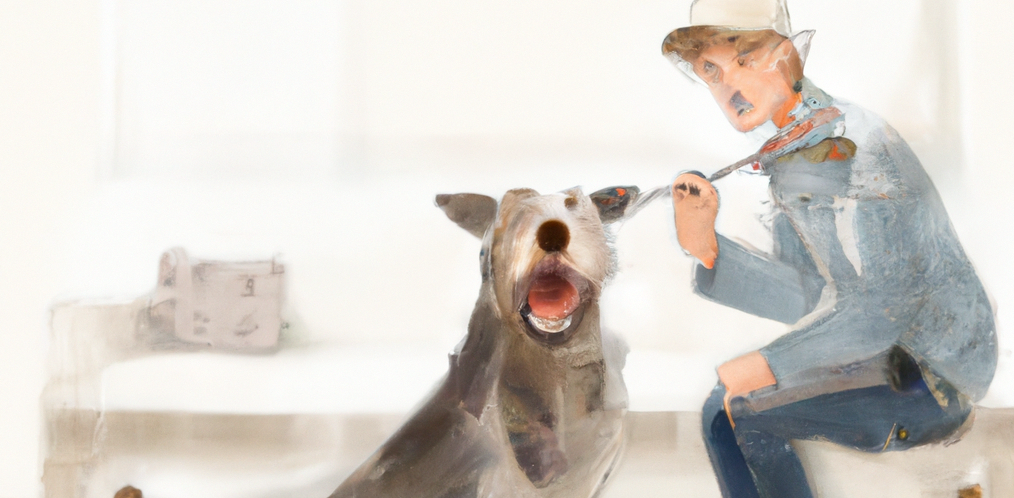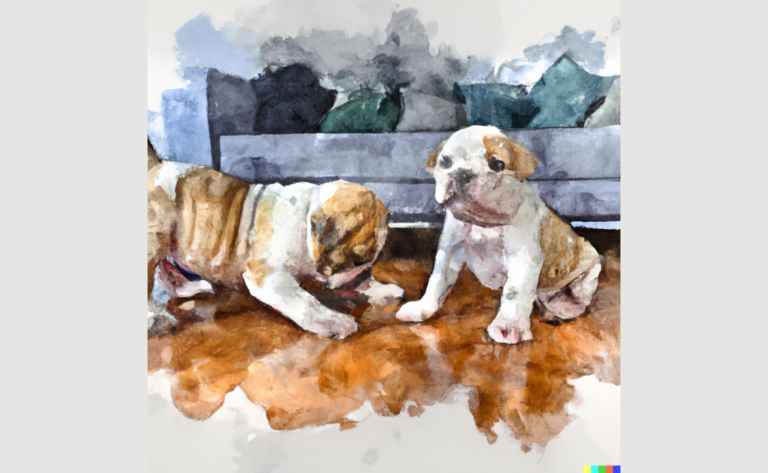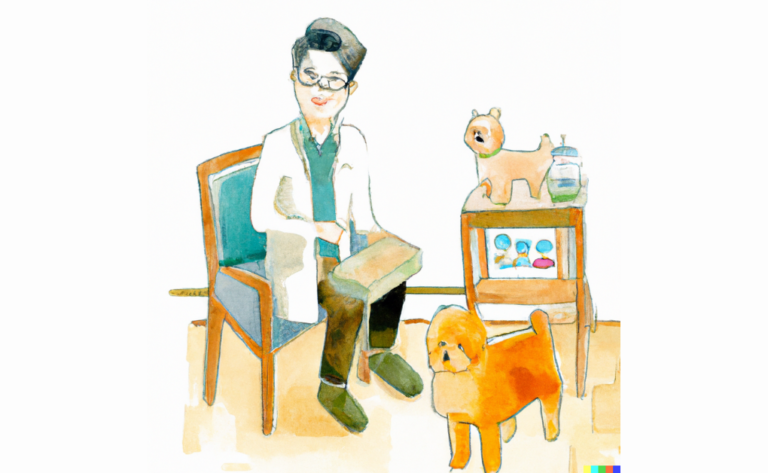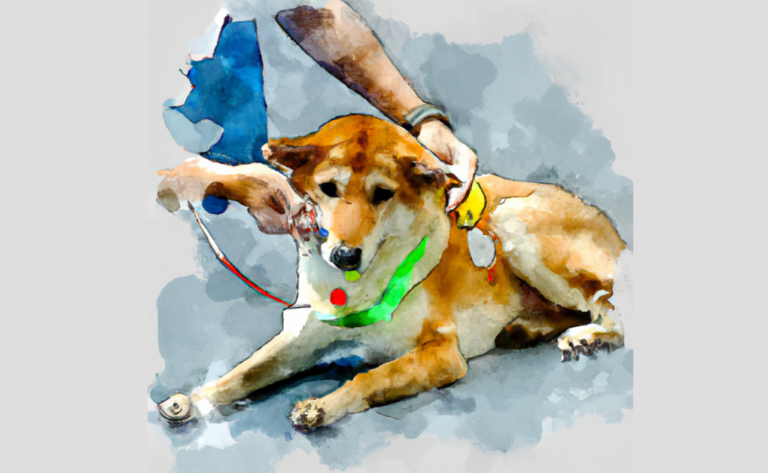Pet Dental Care Tips for Your Dog
As a pet parent, you know how vital keeping your pup happy and healthy is, but did you know that part of this includes taking care of their teeth? Good oral hygiene for your dog can help prevent painful health issues. From brushing and wiping to professional cleanings and dental treats, there are many ways to maintain your dog’s dental health. Let’s look at some tips so you can give your pup a sparkling smile!
Why Is Dog Dental Care Important?
Good dental care is essential for any pet, but especially for dogs. Not only can poor oral hygiene lead to bad breath and an unpleasant appearance, but it can also cause more severe health issues. Poor dental health has been linked to heart disease and other systemic problems in humans and pets, so ensuring your pup’s mouth stays as healthy as possible is essential. Regular brushing, dental chews, and professional cleanings can help keep your dog’s teeth in good shape. They will not only enjoy the taste of dental treats, but you’ll also be helping them avoid painful gum diseases like periodontal disease or gingivitis. Caring for your pup’s teeth is an essential part of their overall health and well-being, so make sure that you don’t overlook this critical aspect of pet care.
Causes of Pet Dental Problems
Just like humans, pets can suffer from a variety of dental problems. The most common cause of pet dental issues is plaque buildup, caused by bacteria in your pet’s mouth that feed off food particles and saliva. Plaque buildup can lead to tartar accumulation, which causes painful gum infections such as gingivitis and periodontal disease. Poor diet and poor oral hygiene also contribute to pet dental problems. Food particles can accumulate on the teeth without proper nutrition and regular brushing and contribute to plaque build-up. Additionally, some pets may suffer from broken or loose teeth due to trauma or other underlying conditions such as tooth malformation or infection. Finally, some pets may develop tumors in their mouths that can cause pain and damage the surrounding tissue if not treated promptly. Taking care of your pet’s oral health is essential for their overall well-being and quality of life. Ensure you provide them with proper nutrition, daily brushing, regular vet visits, and professional cleanings when needed.
By taking the proper steps to ensure your pet’s dental health, you can help prevent painful and costly dental issues from occurring. To learn more about how to keep your dog’s teeth clean and healthy, read on for several tips!
Keep Your Dog’s Teeth Clean With Several Tips
Being a pet owner, you likely already know how important it is to keep your pup’s teeth clean and healthy. After all, bad breath and dental disease can be painful for your dog, not to mention expensive for you. But luckily, with the right approach and some simple tips, you can help keep your pup’s pearly whites in tip-top shape.
First, brush your dog’s teeth at least two to three times weekly with a soft-bristled toothbrush designed for pets. If your pup isn’t used to brushing yet, start slowly by gradually introducing them to the process — such as first letting them get used to having their mouth handled before adding the toothpaste and brushing. Make sure not to use human toothpaste, which can be dangerous if swallowed!
Next, give your pup dental treats or chews regularly to break down plaque buildup on their teeth. Additionally, ensure they have a regular oral exam at the vet to check for any issues that may arise regarding their dental health. Finally, consider adding wet food or dry kibble, specially made for oral health, into their diet. These foods are formulated with essential nutrients that work together to keep their teeth clean and healthy from the inside out.
By staying consistent with these tips and ensuring your pup gets regular checkups at the vet, you’ll be able to maintain good oral hygiene throughout their lifetime!
By following these simple steps, you’ll be able to keep your pup’s teeth in great shape and ensure they are smiling for many years to come! But remember professional cleanings may still be necessary, even with regular brushing and dental treats. Keep reading to learn more!
Professional Dental Cleanings
Most pet owners know the importance of regular brushing and dental treats for their pup’s oral hygiene, but professional cleanings are also important. Doing so can help prevent or address any issues that could go unnoticed and lead to further health issues. Professional cleanings involve a veterinarian examination and a thorough dental examination of your pup’s mouth and may include scaling, polishing, and fluoride treatments. In addition, they may be necessary if your dog has an untreated dental issue such as periodontal disease, broken teeth, tooth loss, tartar buildup, or gum disease.
Your veterinarian will likely recommend professional cleanings every 6-12 months, depending on your pup’s age and overall health. Professional cleanings are often expensive, but there is peace of mind in knowing that your pup’s mouth is in good condition!
Overall, regular brushing and dental treats combined with professional cleanings from time to time should help maintain your pup’s oral hygiene throughout its lifetime.
What is Veterinary Dentistry, and Who Should Perform It?
Veterinary dentistry is a particular branch of veterinary medicine that focuses on animals’ oral health. Veterinary dentists are trained and qualified to diagnose, treat, and prevent diseases and conditions of pets’ teeth, gums, and mouths. This includes professional cleanings, polishing, scaling, fluoride treatments, tooth extractions, broken teeth repair, gum disease treatment, and more.
It’s important to know that only a veterinarian or board-certified veterinary dentist should perform any dental procedure on your pet. Depending on state or provincial regulations, veterinary technicians may be allowed to perform specific dental functions under the supervision of a veterinarian.
A thorough examination by a veterinarian should always begin the process of dental care for your pet. Radiographs (x-rays) may also be necessary to evaluate the health of the jaw and tooth roots below the gum line, as most dental diseases occur out of sight in these areas.
To ensure good oral hygiene throughout your pet’s lifetime, it is essential to have regular professional cleanings every 6-12 months, depending on age and overall health, combined with regular brushing at home using a pet toothbrush or finger brush with an approved pet toothpaste (not human toothpaste).
Why Does Dentistry Require Anesthesia?
Anesthesia is a critical component of pet dentistry for several reasons. First and foremost, anesthesia is necessary to ensure the safety and comfort of your pet during dental procedures. Without it, your pet may be moving around or trying to escape, which could increase their risk of injury. Anesthesia also allows for a more thorough cleaning, as your pet will not be moving around or trying to escape from the dental equipment. Finally, suppose radiographs (x-rays) are needed to evaluate the health of your pet’s jaw and tooth roots below the gumline. In that case, they will only be able to get good images if your pet is still — something that can only happen with heavy sedation or anesthesia. For these reasons, ensuring that a veterinarian or board-certified veterinary dentist performs any dental procedure on your pet with proper anesthesia protocols is essential.
Brushing Your Dog’s Teeth
Brushing your dog’s teeth is essential to their dental health, but it can be challenging for some pet owners. While it might seem silly initially, brushing your pup’s teeth is the best way to prevent plaque buildup and other dental issues. Luckily, with some patience and practice, you can quickly train your dog to have his teeth brushed.
Start by getting toothpaste made specifically for dogs—human toothpaste contains toxic ingredients for our pets. Gently introduce your dog to having his teeth brushed by practicing with a finger brush or cloth in circular motions around their mouth. Once comfortable, move on to a pet toothbrush that fits comfortably in their mouth and uses doggy-safe toothpaste. Be sure to brush in gentle circles around each tooth and the gum line to help reduce tartar buildup and bad breath.
Aim for daily brushing if possible, but at least two to three times per week will help keep their pearly whites healthy! If your pup needs extra help with oral hygiene issues like periodontal disease or broken teeth, talk to your veterinarian about professional cleanings and other options for keeping your pup’s smile at its brightest!
How to Brush Your Dog’s Teeth
Brushing your dog’s teeth is essential to its overall health and well-being, and it can be much easier than you think! You’ll need to pick up some doggy toothpaste and a toothbrush that fits comfortably in your pup’s mouth. When introducing them to brushing their teeth, start with a finger brush or cloth in gentle circular motions around their mouth. Once they’re comfortable with this, move on to the toothbrush and toothpaste. Be sure to brush each tooth’s surfaces and gumline in gentle circles for the best results. Aim for brushing daily if possible, but at least two-three times per week will help keep their pearly whites healthy! If your pup needs extra help with oral hygiene issues like periodontal disease or broken teeth, talk to your veterinarian about professional cleanings and other options for keeping your pup’s smile at its brightest!
Dog Tooth Wipes
Dog tooth wipes are a great way to keep your pup’s teeth clean and healthy! Unlike human toothpaste, dog tooth wipes are specifically designed for use on pets. They come in various sizes and shapes, from small individual wipes to larger ones that can be used on larger dogs. Dog tooth wipes are an easy alternative to brushing your pup’s teeth as they don’t require any special skills or equipment. Rub the wipe against your pet’s teeth to help remove plaque and debris. It’s best to use these wipes daily if possible, but at least two-three times per week will help keep your pup’s pearly whites sparkling! If you notice any signs of dental diseases, such as bad breath, tartar buildup, loose teeth, or gum disease, you must immediately take your pup to the vet for an oral exam and treatment plan. Tooth wipes are a great way to supplement regular brushing, but they should not replace professional dental care.
Dog Dental Treats
Dog dental treats are a great way to boost oral health for your pup! They come in all shapes, sizes, and flavors and can help remove plaque buildup from your pup’s teeth. Dental treats have unique ingredients that freshen their breath and keep their mouths clean. Not only are they tasty for dogs, but they also provide a good source of nutrition. Most dental treats are designed to be chewed up and not swallowed whole, so you don’t need to worry about any potential choking hazards. It’s important to remember that while these treats may help with overall oral hygiene, they should not replace regular brushing or professional dental care. To get the most out of these special treats, it’s best to use them daily as part of your pup’s daily routine. Give your dog a dental treat today – they will thank you with lots of kisses!
Dog Chews
Dog chews are a great way to promote dental health in your pup! Chewing is a natural behavior for dogs; most will happily munch away on anything they can get their teeth on. But when it comes to dental care, not all chews are created equal. All-natural meat chews are a great option, as they contain enzymes that help break down plaque and keep their breath fresh. Also, long-lasting rubber or nylon toys can help remove plaque from your pup’s teeth while keeping them entertained. Regardless of what type of chew you give your dog, it’s important to remember that these treats should be used in addition to regular brushing or professional dental care. Give your pup the best oral health possible with dog chews today – they’ll thank you for it!
Water Additives for Canine Dental Health
Water additives for canine dental health are an easy way to help keep your pup’s teeth clean and healthy. These additives are added directly to your pup’s drinking water, where they work to reduce plaque buildup, freshen breath, and help keep teeth strong. Most water additives contain natural ingredients like zinc gluconate and aloe vera that fight bacteria in the mouth and provide essential vitamins and minerals. They also often contain active ingredients such as chlorine dioxide, which can help kill the germs that cause bad breath. Water additives have been proven to improve oral hygiene in dogs – remember to always consult your vet before adding any new product to your pup’s diet. With regular use, these water additives can go a long way toward keeping your furry friend’s teeth sparkling clean!
Oral Spray
Oral sprays are another great way to help keep your pup’s teeth healthy and clean. Oral sprays contain natural ingredients like tea tree oil, known for its antibacterial and antifungal properties. They can also contain essential vitamins and minerals that promote oral health in dogs. The active ingredients in these sprays are designed to help reduce plaque buildup, freshen breath, and even help strengthen teeth. You have to remember to keep a few tips in mind when using an oral spray for your pup: always consult with your vet before use; start slow by spraying a small amount at first; never spray directly into your pet’s eyes or mouth; and finally, always use the recommended dosage as per the product instructions. Regularly used sprays can be great for maintaining good dental hygiene in your pup!
Adding Dental Powders to Your Dog’s Food
Adding dental powders to your pup’s food is an easy and effective way to keep their teeth clean and healthy. Dental powders are made of natural ingredients like herbs, minerals, enzymes, and probiotics that help reduce plaque buildup, freshen your breath, and prevent gum disease. This form of dental care is straightforward – you must sprinkle a small amount onto your pup’s food once or twice daily. The powder can be easily mixed with wet or dry food for maximum health benefits.
In addition to reducing plaque buildup and freshening breath, dental powders often contain beneficial vitamins that help promote oral health in dogs. They can also come in different flavors like beef or chicken, making them more attractive to pups who may not be keen on brushing their teeth! Just make sure you buy a suitable powder for your pup – it Gould be designed for canine oral hygiene.
Dental powders are a great way to supplement your dog’s regular oral care routine without having to put in as much effort. They’re easy to use and provide great results without costing too much! So if you want a convenient way to keep your pup’s teeth clean and healthy, adding the dental powder to their food might be the perfect solution!
Prescription Canine Dental Food
Prescription canine dental food is essential to keeping your pup’s teeth healthy and happy. This type of food is specially formulated with ingredients that help reduce plaque buildup, fight bacteria and freshen breath. It also contains minerals and vitamins to ensure your pup gets the nutrition they need for optimal oral health.
Unlike traditional dog food, prescription canine dental food has a crunchy texture that helps to scrub plaque from your pup’s teeth as they eat. The kibble pieces are also bigger than regular dog food, which forces your puppy to chew more, further aiding in plaque removal. Plus, many brands are flavored with yummy ingredients like beef or chicken to make them more palatable for picky pups!
Prescription canine dental food can be a great addition to your pup’s regular oral care routine if you’re looking for an easy way to keep their teeth clean. However, it should always be used with brushing or other methods of removing plaque – it won’t do the job alone! So if you want to give your pup the best possible dental hygiene, consider adding prescription canine dental food into their daily diet!
Dental Toys
Dental toys are a great option if you’re looking for an easy and fun way to keep your pup’s teeth clean! Dental toys are explicitly designed to help fight plaque and tartar buildup. They work by providing your dog with something to chew on that helps scrub their teeth and gums as they play, which can help reduce the number of bacteria in their mouth and prevent periodontal disease. Plus, they come in all shapes, sizes, and flavors so that you can find just the right one for your pup.
Dental toys come in a variety of materials ranging from rubber to nylon. The best ones are made with stricter material matching your pup’s chewing habits. Look for toys with textured surfaces that will help scrape away plaque as they chew — many also have ridges or nubs that massage their gums while they play. Some dental toys even have built-in or finger brushes that allow you to brush your pup’s teeth while they play!
No matter which dental toy you choose, it’s important to remember that these items should only be used under supervision — and always make sure they’re the appropriate size for your pup! However, with the correct type of toy, you can give your dog a fun way to keep its pearly whites healthy!
Start Early With Your Dog as a Puppy!
Starting early with dental care for your pup is vital in helping them stay healthy and happy. While dogs may only need professional teeth cleanings later in life, you can still do plenty of simple things to help keep their mouths free of bacteria and plaque.
The best time to start is when they’re still puppies. Accustoming your pup to regular teeth cleaning as a puppy will make it easier as they get older. Begin by gently touching their mouth and lifting their lips, then use a soft cloth or finger brush (or even a Q-tip) to wipe away plaque buildup on the outside of the teeth. As they get used to this routine, you can slowly add more teeth brushing with a pet toothbrush and toothpaste made specifically for pets — human toothpaste can be too harsh for dogs!
To further protect your pup’s oral health, consider investing in dental treats or toys designed to help fight plaque. These come in all shapes, sizes, and flavors so that you can find just the right one for your pup! These items provide extra protection against periodontal disease while giving your dog something fun to play with.
By starting early with dental care for your pup, you’ll be setting them up for long-term health benefits — both now and later on down the road!
By beginning early with dental care for your pup, you can ensure their mouths stay healthy and happy for years! And when it comes time to take the next step in your pup’s dental health, don’t forget to make an appointment with a veterinarian — we’ll tell you why in our next section!
When to See a Veterinarian
If you’ve been looking after your pup’s dental health but still notice signs of an issue, it’s essential to take the next step and see a veterinarian. A veterinarian can give your pup a complete oral exam and X-rays to ensure everything is healthy and identify any issues that may require further attention.
They may also recommend professional dental cleaning if they detect tartar buildup or other issues. During this procedure, your pup will be put under general anesthesia for their safety, and a veterinary technician will use specialized tools to remove plaque and tartar from their teeth. This can also help prevent gum disease, tooth loss, broken teeth, abscesses, and other dental issues.
It’s important to note that if your pup has any existing dental issues or infections, the vet may prescribe antibiotics or other treatments before cleaning. They may also advise additional steps such as daily brushing with a pet toothbrush and toothpaste made specifically for pets.
By visiting a veterinarian for your pup’s dental needs, you can ensure they stay in top shape — now and later on down the road!
Ensuring your pup’s oral health is essential to its overall well-being. By visiting a veterinarian for your pup’s dental needs, you can help prevent potential issues and ensure they stay happy and healthy. Clean now and save yourself the trouble later – learn how to keep your pup’s teeth in tip-top shape!
Clean Now, Save Yourself Trouble Later
Cleaning your pup’s teeth regularly is essential for preventing long-term health issues and saving yourself time and money. When it comes to dental care, prevention is critical. Not only will regular brushing help keep bad breath at bay, but it can also help remove plaque buildup that can lead to painful periodontal disease and other health issues.
Brushing your pup’s teeth with a finger brush or pet toothbrush is one of the most effective ways to keep their mouth clean — and don’t forget to use pet toothpaste! You should also ensure your pup gets dental treats and food designed for oral hygiene. You can confirm their entire mouth gets a good scrubbing by brushing in a circular motion.
It’s always possible to start taking care of your pup’s teeth! Taking the time now to get into a routine of brushing and using dental products made specifically for pets will save you from costly vet visits. Keep your pup smiling for years to come by starting on their oral hygiene today!
Regular dental care is essential for your pup’s long-term health and well-being. Take the time now to get into a routine of brushing and using dental products made specifically for pets so you can keep that big smile on their face for years to come! But avoid giving your pup items like tennis balls and bones, as we’ll explore in the next section.
Avoid Tennis Balls and Bones
Believe it or not, tennis balls and bones can harm your pup’s teeth more than reasonably. Although they may be fun to play with, tennis balls can be abrasive on your pup’s enamel, leading to broken teeth or wearing away their protective layer. Bones, conversely, can get stuck between the teeth and cause gum irritation or infection.
To keep your pup’s mouth healthy and safe, try offering them dental chews or toys made from softer materials like rope or rubber. These items are designed specifically for pet oral health and can help keep plaque at bay without damaging the enamel. You can also coat them in pet-safe toothpaste to protect against bacteria buildup!
Disclaimer: The information provided on this veterinary website is intended for general educational purposes only and should not be considered as a substitute for professional veterinary advice, diagnosis, or treatment. Always consult a licensed veterinarian for any concerns or questions regarding the health and well-being of your pet. This website does not claim to cover every possible situation or provide exhaustive knowledge on the subjects presented. The owners and contributors of this website are not responsible for any harm or loss that may result from the use or misuse of the information provided herein.







